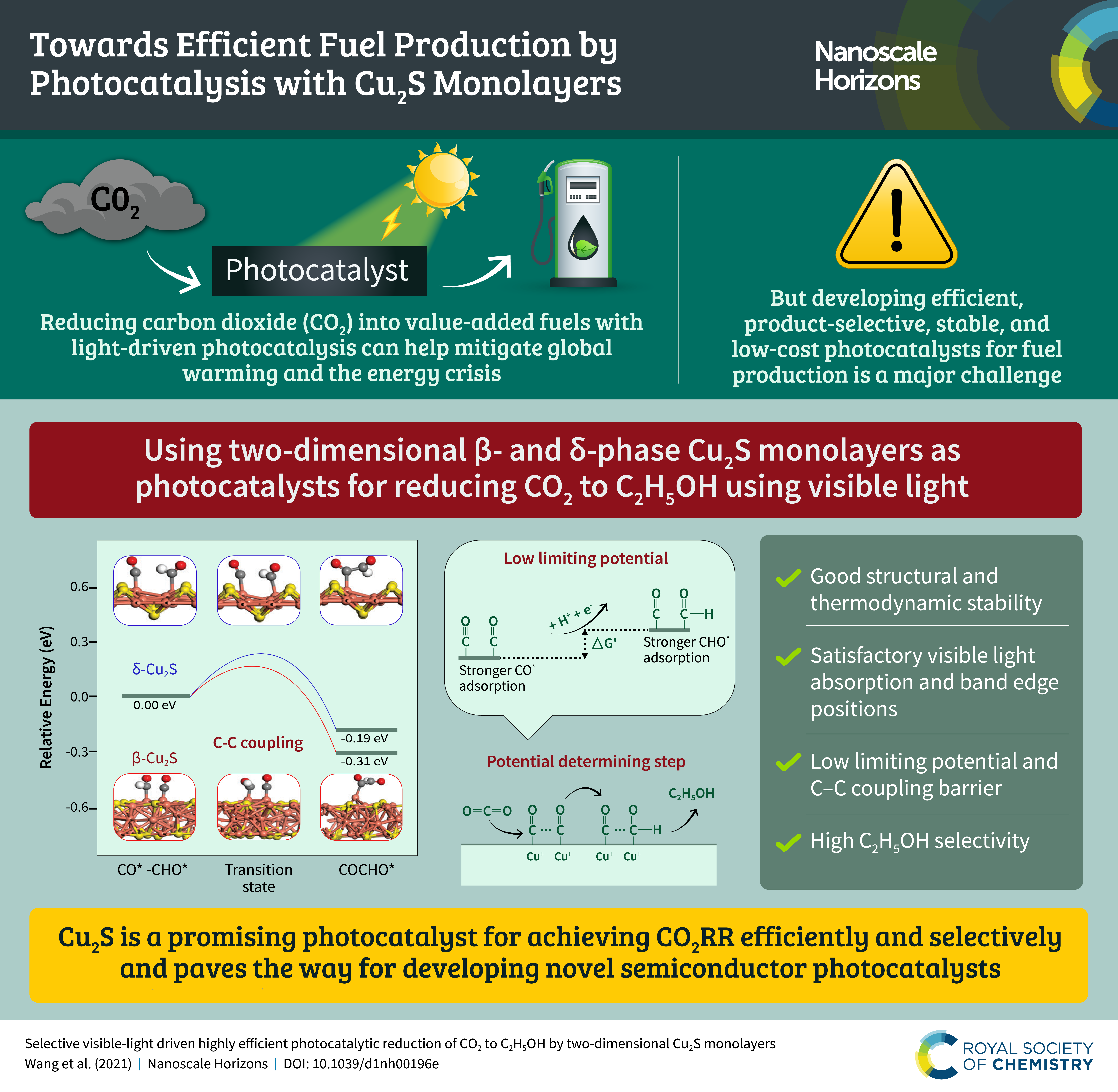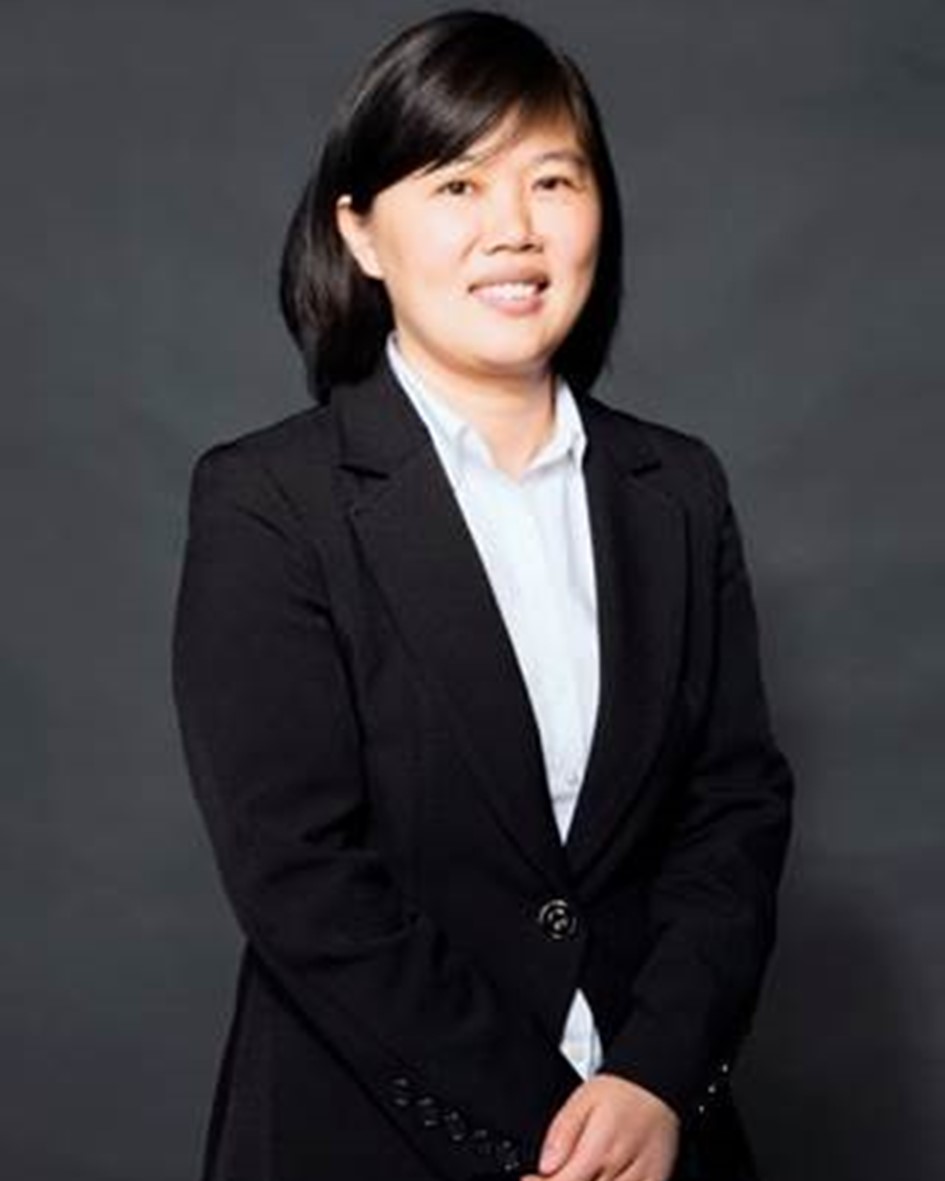Towards Efficient Fuel Production by Photocatalysis with Cu2S Monolayers
An infographic highlighting Cu2S as a promising photocatalyst for CO2 reduction
We would like to share an infographic highlighting the excellent work by Jinlan Wang et al. on Cu2S monolayers which have a low limiting potential, high product selectivity, strong visible light absorbance and satisfactory band edge positions for CO2 reduction! Check out the infographic below to learn more or get the full story from their Nanoscale Horizons article.
Selective visible-light driven highly efficient photocatalytic reduction of CO2 to C2H5OH by two-dimensional Cu2S monolayers
Shiyan Wang, Xiaowan Bai, Qiang Li, Yixin Ouyang, Li Shi and Jinlan Wang
Nanoscale Horiz., 2021, DOI: 10.1039/D1NH00196E

Meet the authors

|
Shiyan Wang
Shiyan Wang received his BS and ME degrees in College of Physics and Materials Science at the Henan Normal University in 2015 and 2018, respectively. At present, he is working on his PhD under the supervision of Prof. Jinlan Wang at the School of Physics at Southeast University. His current research focuses on theoretical simulation and design for the catalytic reaction of two-dimensional materials. |
 |
Jinlan Wang
Jinlan Wang is currently a distinguished professor in School of Physics at Southeast University. She got her Ph. D from Department of Physics, Nanjing University in 2002. Then, she had three-year Postdoctoral experiences at Chemistry Division, Argonne National Laboratory. Since 2006, she joined in Southeast University as a faculty and developed a computational physics and chemistry group. Her current research interest mainly focuses on computational studies and design of two-dimensional materials and clean energy materials. The techniques involves from machine learning to classical molecular dynamics to different level first-principles methods. She is Associated Editor of Nanoscale and Nanoscale Advances and Scientific Editor of Nanoscale Horizons and she is an RSC Fellow. |










